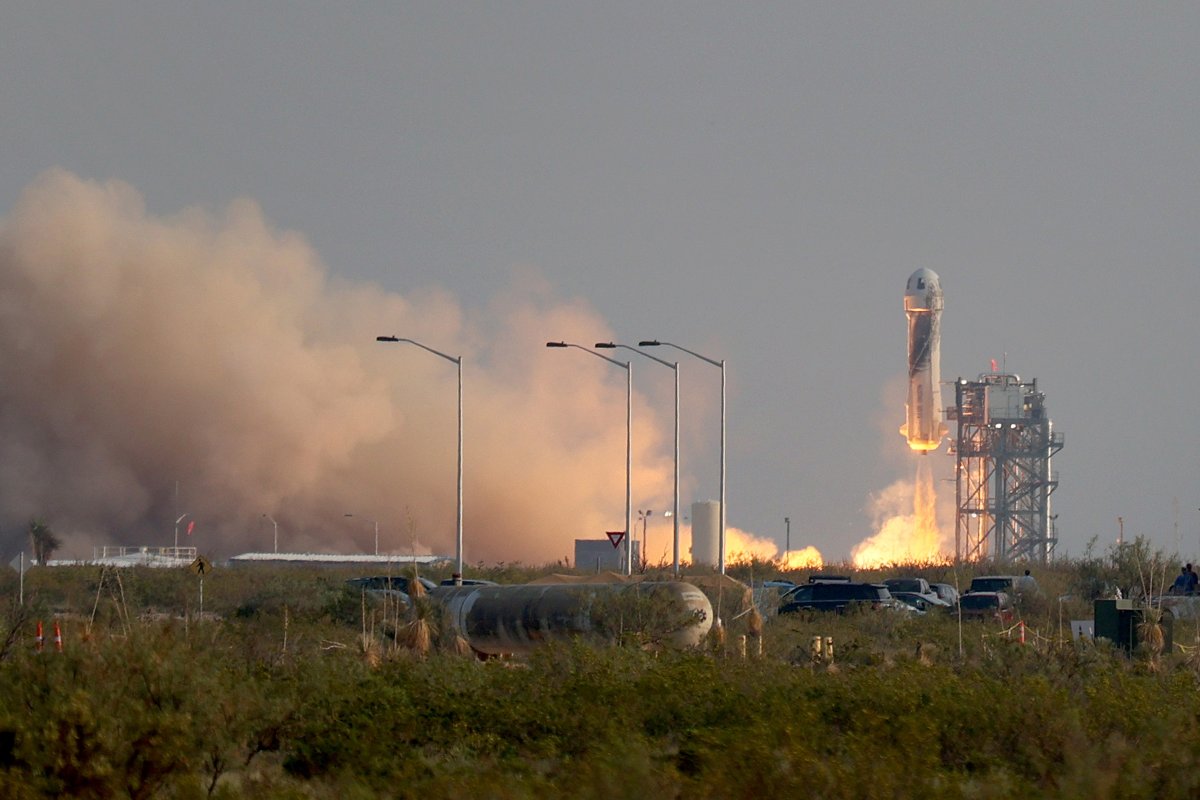It is no secret that women are underrepresented in the space industry. What is less well known are the challenges many women who are in the industry face. Like so many other male-dominated professions, women in the space sector are often faced with a culture of sexual harassment and misogyny that can be difficult to escape.
"I think space travel is all about adventure and possibility and daring to go where no one has ever gone before," Mindy Howard, astronaut trainer and founding director of Inner Space Training, told Newsweek. "Both nature and nurture are working against women to go out and be explorers like that."
Today, only one in five aerospace workers are women, a figure that has hardly changed in three decades. And while organizations like NASA have recognized and acted upon the need for more female representation, progress across most of the industry has been slow.

"Visible diversity really helps...some people just want to get the permission to dream," Howard said. "More and more women are gradually getting into more senior positions [in the space industry], but once they get there, they're still having to deal with this harassment, bullying, and not feeling that they can bring their whole selves to work.
"It's like there are obstacles all the way: you have obstacles as kids to get there and then once you're an adult you're often confronted by this sort of stuff as well."
In 2021, employees from two of the biggest aerospace companies, Blue Origin and SpaceX, came forward to share their experiences of sexual harassment and misconduct within these organizations. But very little has been done since these allegations came to light.
"We were all fed up of seeing our friends being harassed," Caleigh MacPherson, co-founder of Astro Advocates and Allies, told Newsweek. In 2021, she and two co-workers, Heather Morehouse and Victoria Varone, set up a Facebook group to support victims of sexual harassment and bullying within the space industry and provide resources to help people combat these issues in the workplace.
"A large portion of the group are people who are seeing this happen and want education so that if they recognize something happening they can step in," MacPherson said.
Sexual harassment is everywhere in every industry, she said. Aerospace is no exception.
"We've seen it in the little private companies, we've seen it in the big monster companies like SpaceX, and we've seen it in places like NASA itself...We've had people in the group who no longer work in the space industry who have left because it was too toxic for them."
Heather Morehouse, another of the group's co-founders, explained why this is so devastating. "Think about the time, money, education and energy these people have put into pursuing, often multiple degrees, internships, making connections, to only come to a point where they must throw it all away," she told Newsweek.
"Many choose to push [the incident] aside and stay in their jobs, but often leave within a year of reporting because of crushing anxiety, stress and continued harassment...Many times, the victim ends up leaving because the information was 'leaked'...Many of these women do not report because they are afraid of retaliation."

By working with victims of harassment and misconduct, the group has managed to provide support and resolution for several of its members. "Over 250 people have reached out for either support, to tell their stories, or to help rewrite policies and expectations," MacPherson said. "We are 16 months into this whole endeavor–in that time, 16 cases have been fully resolved, 6 set in motion, and 12 are being revisited after being completely ignored for years.
"We're not registered therapists but we are women and we are friends and we have all experienced harassment in some form.
"There's different levels of closure. For the majority of the people who have come forward it's been more mental closure...but in a couple of cases they've actually gone to court and won."
This kind of legal closure is a big achievement, said Morehouse. "The average time, from when an incident is reported to the time the incident is considered closed, is over three years," she said. "And most incidents that are reported never get beyond the initial report."
As well as supporting victims, the group actively encourages industry leaders to set up and implement clear sexual harassment policies to make it easier for future victims to report and resolve any issues they might face.
"We've had more success with the little companies because they are not so rigid," MacPherson said. "They can be flexible enough to change their policies. With the bigger companies, introducing new policies is more of a challenge. There's so much bureaucracy and you have to go through all the paperwork. You can't just say 'hey, this policy really bugs me, can we change it?'"
"We're seeing little positive things which are a great motivator to keep us going but it will be a while before we see any big positive change," MacPherson said.

Morehouse said that even companies with established sexual harassment policies are often reluctant to implement them. "These companies look pretty, with their policies and procedures in place, but they fail when it comes to the execution and meaningful outcomes," she said.
Since the industry's brief #MeToo moment in 2021, there is more awareness around the issue. But has anything actually changed? "Things have not gotten better," MacPherson said. "In small ways they have, but things are not massively different...Some of it's the red tape, some of it is people sticking their heads in the sand. If you look at the metrics of the female turnover in the workforce in the space industry it's still a lot faster than men."
To see real positive change, Morehouse believes that these policies will need to be consistent across organizations. "We have come up with the solution of having an overall group, an industry overseer here in the U.S...that monitors and deals with aerospace specifically, as a whole, that will not be biased...and that can handle these cases in a discreet and timely manner," she said,
"That is a huge task to undertake, but we are getting started...it's about finding the right people and people who are willing to take the risk."
MacPherson said she is keen not to put off potential female space workers by sharing these stories. Rather, she wants to see these support systems put in place to empower female industry workers.
"You have the power to make change," she said. "If you see something you don't like you can change it. The big thing is having a support system."
Uncommon Knowledge
Newsweek is committed to challenging conventional wisdom and finding connections in the search for common ground.
Newsweek is committed to challenging conventional wisdom and finding connections in the search for common ground.
About the writer
Pandora Dewan is a Senior Science Reporter at Newsweek based in London, UK. Her focus is reporting on science, health ... Read more
To read how Newsweek uses AI as a newsroom tool, Click here.








